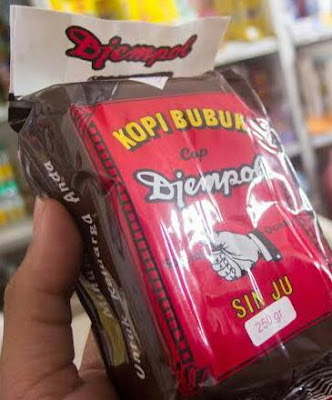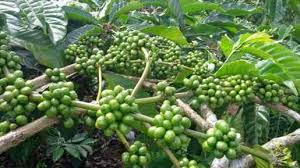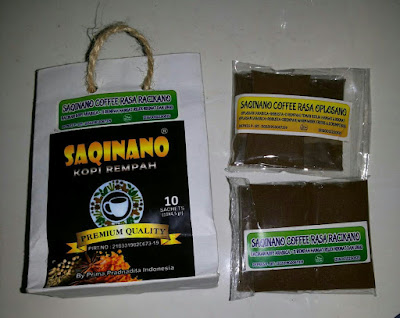Kebumen Espreso Coffee, Way Unique Presenting Coffee
Coffee is now one of the most interesting commodities in the world. Coffee is a type of beverage that is important to most people around the world. Not only because of the consumers' enjoyment of coffee drinkers but also because of the economic value for countries producing and exporting coffee beans such as Indonesia.
Coffee is made from the seeds of coffee plants (flowering plants from the Rubiaceae family) that are baked. Coffee is the second most commercially traded commodity in human history.
The subtropical and tropical regions are good locations for coffee cultivation. Therefore, the countries that dominate world coffee production are in South America, Africa and Southeast Asia.
Indonesia is one of the largest coffee producing and exporting countries in the world. Most of the products are robusta varieties of lower quality. Indonesia is also famous for having a number of specialty coffees such as 'Luwak coffee' (known as the most expensive coffee in the world) and 'Mandailing coffee'.
Coffee is the fourth largest foreign exchange earner for Indonesia after palm oil, rubber and cocoa.
Coffee is a story of past plantations in Kebumen that try to raised up the beautiful story again.
In history, Kebumen used to be a coffee center. Even in Dutch records also mentioned that coffee is one of the mainstay commodities Kebumen in the colonial period. The possibility of coffee cultivated at that time is robusta coffee and some of it the type of coffee nyamplung, the typical coffee Kebumen arise due to adaptation type of arabica coffee that does not match the coastal conditions with fruit that is not too dense.
Unfortunately, since 30 years ago Kebumen coffee commodities no longer exist in the national market and Indonesian coffee exports. This is in line with the faded tradition of planting coffee from farmers. Even the coffee plant is completely exhausted after many trees are felled.
Coffee in Kebumen then disappeared since 1987 which was replaced by a clove that was loved by farmers Kebumen.
Recent years coffee tried to be revived to be one of the mainstay commodities in Kebumen. The Kebumen Regency Government has since 2014 conducted a massive coffee plantation in the forests owned by the people and in state forests in cooperation with Forest Village Society and Perum Perhutani Institutions.
Since the emergence of coffee gardens in Kebumen that produce Kebumen coffee beans, local governments make coffee as a commodity of non-timber forest products that are worthy of exports.
Some coffee farmers, coffee business actors and Kebumen regency government are trying to revive the sweetness of the coffee story in Kebumen.
Coffee lovers in Kebumen have begun to show themselves by forming a community called Kebumen Copying.
Prior to the arrival of large-scale national brand packaging coffee in this decade, Djempol coffee became a mandatory treat in the morning with kretek, linthing and tempe mendoan.
The local people of Kebumen making Djempol coffee as something that must be in their daily needs. In fact, secret the robusta coffee blend with vanilla, corn, and cloves creates a unique way of enjoying coffee from Kebumen, which is "nguntut kopi" that kids used to do in ancient times and now that tradition may no longer be found.
Djempol coffee that existed since 1969 has become a coffee icon in southern Central Java. Kebumen coffee revival created a unique innovation of how to drink coffee.
An espresso machine is certainly no stranger for coffee lovers in big cafes. Because through espresso, various types of coffee drinks presented. Like processed moccachino, cappuchino, caffe late, and other types of coffee preparations.
Enjoying the sensation of drinking Kebumen coffee healthy and delicious do not have to be expensive. There is a unique and distinctive way of presenting Kebumen coffee through a number of methods with an espresso machine made from bamboo.
Quite simply how to present Kebumen's various flavors of coffee with the bamboo espresso machine. How to presenting Kebumen coffee filtered like Vietnam Drip, then milk in stirring cinnamon. What is different is the innovation in the creation of Kebumen coffee beans using bamboo media as a tool to substitute the espresso tool. The bamboo espresso machine is a simple tool of a bamboo glasses she uses for dripping coffee.
Bamboo cylinders (bamboo glasses) are smoothed by varying sizes, from 4 cm, up to 6 cm with holes underneath being used like Vietnamese drip.
The smoothed coffee beans are then put into the bamboo glasses, poured with hot water and then filtered for the extract. Coffee also looks more black and more concentrated. Process for getting one cup of bamboo coffee as well as waiting for the more dark color takes quite a long time, between five to ten minutes.
The use of bamboo glasses makes the filtering process more perfect. In addition to removing elemental saccharose in the coffee, the process of filtering by using bamboo glasses can remove the poison so it feels different from other coffee but with the taste and quality are very high not less than the coffee dish cafe standard.
All types of coffee filtered with bamboo will have a distinctive flavor. A little bamboo scent will make the smell of coffee more awake.
The coffee a result bamboo filter will have a golden yellow color until a typical espresso froth appears. After that, coffee can be served according to taste, either by adding sugar or cream or milk.
Not inferior to espresso. Coffee beans like extracted perfectly. The taste and aroma feel very strong. Flavors that are not on espresso will be found. Because the level of originality of coffee tasted.
The element of bamboo can break down carbohydrates and be able to absorb glucose. Coffee produced from bamboo or bumbung, the glucose levels are minimal. Automatic carbohydrates will break down and become low calorie coffee.
To get a good taste of coffee does not have to be with an expensive tool. With innovation from bamboo raw materials that can be obtained from anywhere also able to compete with the quality of coffee blend from modern tools.
Delicious or not of taste coffee is not from how expensive the equipment is used. But from people's knowledge of coffee and appreciate the efforts of others.
Coffee lovers increasingly spoiled by the proliferation of cafes with creative concept of coffee that offers the uniqueness of each cafe. Coffee presentation for coffee lovers as well as providing information about coffee, such as single origin with various methods such as aeropress brewing, v60, chemex, syphon, vietnam drip and cold drip into one concept of drinking coffee on offer.
The cafe as one of the coffee places today not only offers cheap prices but how consumers enjoy the classy menu with a comfortable place. Presenting quality coffee and with the best processing, so that the resulting flavor becomes more leverage.
Kebumen Coffee has a bright future. The uniqueness of taste as well as the way of serving coffee using bamboo espresso machine offers health drinking sensation Kebumen delicious and delicious do not have to be expensive. Processed products of roasted coffee and oven powder are supplied in some cafes in Yogyakarta and Jakarta. Even the demand for bamboo coffee also comes from foreign consumers.
Demand for Kebumen coffee market is so unfulfilled as Kebumen's supply of coffee is very limited.
Kebumen Coffee is a special dish that attracts visitors and becomes a distinctive brand of Kebumen.







